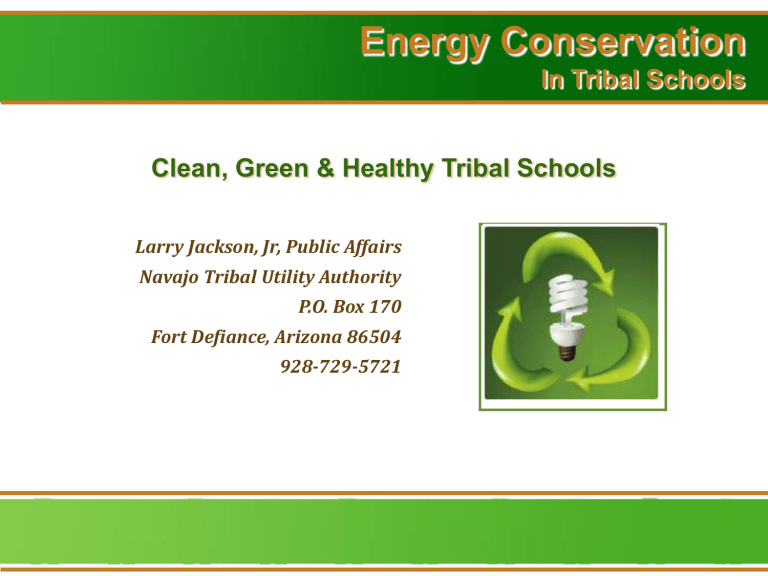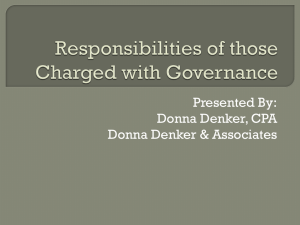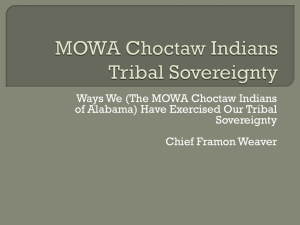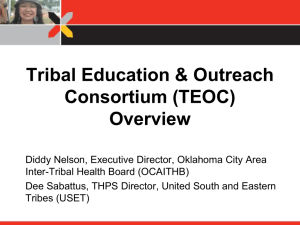Energy Conservation

Energy Conservation
In Tribal Schools
Clean, Green & Healthy Tribal Schools
Larry Jackson, Jr, Public Affairs
Navajo Tribal Utility Authority
P.O. Box 170
Fort Defiance, Arizona 86504
928-729-5721
Larry Jackson, Jr.
Larry Jackson, Jr. is a Consumer Relations
Specialist for the Navajo Tribal Utility
Authority. He is from Naschitti, New
Mexico where he attended Tohatchi High
School. Larry earned an associate’s degree in liberal arts from Dine’ College in Tsaile,
Arizona, worked briefly in the public sector before enrolling at Arizona State where he is focusing on bilingual and bicultural studies. In his 4 yearswith NTUA he has served in customer relations conducting many bilingual presentations promoting energy conservation.
Energy Conservation
In Tribal Schools
Clean, Green & Healthy Tribal Schools
Larry Jackson, Jr, Public Affairs
Navajo Tribal Utility Authority
P.O. Box 170
Fort Defiance, Arizona 86504
800-528-5011
Energy Conservation
In Tribal Schools
Clean, Green & Healthy Tribal Schools
Purpose
Provide a resource for professionals to encourage energy conservation in Tribal and all schools
Goals
Tribal School Administrators, teachers, and facilities personnel will be committed to conservation of energy and have tools for assuring clean, green and healthy schools for themselves, children and their community.
Energy Conservation
In Tribal Schools
Safety First!
Consider safety first
Saving energy is important, but avoid measures that have negative impacts on people and communities
All existing and potential health and safety issues should be evaluated prior to implementing any conservation measures
Energy Conservation
In Tribal Schools
What does conserve energy mean?
Conserve Electricity
Conserve Natural Gas
Conserve Water
Energy Conservation
In Tribal Schools
Clean, Green & Healthy Tribal Schools
Resources Schools Use
Gas
Electricity
Water
Energy Conservation
In Tribal Schools
Clean, Green & Healthy Tribal Schools
Why schools are important:
Schools often waste more than any other buildings
Schools provide places for building a future of well- educated recyclers and consumers
Navajo Preparatory School, Farmington NM,
Energy Conservation
In Tribal Schools
Clean, Green & Healthy Tribal Schools
We know the basic rules
Reduce use
Replace energy guzzlers
Repair energy wasters
Use less and use better
Energy Conservation
In Tribal Schools
Clean, Green & Healthy Tribal Schools
Energy Conservation
Practices include managing:
Building Systems
Building Envelope
Lighting & Plug Loads
Heat & Air Conditioning
Kitchen Equipment
Swimming Pools
Energy Conservation
In Tribal Schools
Clean, Green & Healthy Tribal Schools
Definition
Conservation of energy refers to efforts made to reduce energy consumption and to increase efficiency of energy use.
Energy Conservation
In Tribal Schools
Clean, Green & Healthy Tribal Schools
When not in use
Lights off
Electronics off
Exhaust fans, vending machines
Copy machines
Parking lot lights
Remove personal appliances
Energy Conservation
In Tribal Schools
Clean, Green & Healthy Tribal Schools
Plug Loads Eat Energy
Energy Conservation
In Tribal Schools
Clean, Green & Healthy Tribal Schools
Heating Season
68 o for secondary & 70 o for elementary; 65 o when unoccupied
Windows & doors closed
Heater vents clear
Boilers/Heaters with 80-85% efficiency rating
Air Conditioning Season
77 o for all schools
Windows & doors closed
AC vents clear
First Mesa Elementary School, Hopi,
Energy Conservation
In Tribal Schools
Clean, Green & Healthy Tribal Schools
Gas – Natural and Propane
Natural gas used in boilers. Water heaters and kitchen equipment
Propane gas used in generators, boilers and classrooms
Both should be inspected daily for leaks, failure, right useage
Energy Conservation
In Tribal Schools
Clean, Green & Healthy Tribal Schools cost
Reductions of up to 10% can be done at no
Energy Conservation
In Tribal Schools
Clean, Green & Healthy Tribal Schools
185 tribal schools on 64 reservations in 23 states:
Their age (some 60-100) makes them energy wasters
While some schools are being replaced – energy losses are high
Old and poorly maintained schools are energy wasters
Old BIA School
– Girl’s Dormitory, Lemhi County, Idaho
Baca Dio Ay Azhi Consolidated Replacement School
Prewett, NM, Photo courtesy Dyron Murphy Architects
Energy Conservation
In Tribal Schools
Clean, Green & Healthy Tribal Schools
The U.S. Department of Energy’s EnergySmart Schools Program
Promotes 30% improvement in school energy use
Goal is energy-efficiency & high-performance
Promotes a benchmarking of energy use
Considers building use/occupancy schedules
Addresses operations and management
Energy Conservation
In Tribal Schools
.
Clean, Green & Healthy Tribal Schools
Reduce Energy Use
Change light bulbs
Install programmable thermostats
Change EXIT signs to led-powered signs
Energy Conservation
In Tribal Schools
Clean, Green & Healthy Tribal Schools
Reduce Energy Use
Set computers to sleep mode after 5-20 minutes of inactivity
Set computers to enter system standby after 30-60 minutes
Turn off printers and other accessories when not in use
Energy Conservation
In Tribal Schools
Clean, Green & Healthy Tribal Schools
xx
Energy Conservation
In Tribal Schools
Clean, Green & Healthy Tribal Schools
Energy Star Resource Manual
5 Building Upgrade Stages:
Retrocommissioning
Lighting upgrades
Load reductions
Air systems upgrade
HVAC upgrade www.energystar.gov/challenge
Energy Conservation
In Tribal Schools
Clean, Green & Healthy Tribal Schools
Resources
Online toolkit www.energystar.gov/challenge
Quick lists of Resources
Fact Sheets on energy use
Energy Star is a joint program of the Environmental
Protection Agency and the Department of Energy, helping save money and protect the environment through energy efficient products and practices.
Energy Conservation
In Tribal Schools
Clean, Green & Healthy Tribal Schools
Presenter
Larry Jackson, Jr, Public Affairs
Navajo Tribal Utility Authority
928-729-5721
EPA Region 8 Contact
Matthew Langenfeld
U.S. Environmental Protection Agency
303-312-6284








